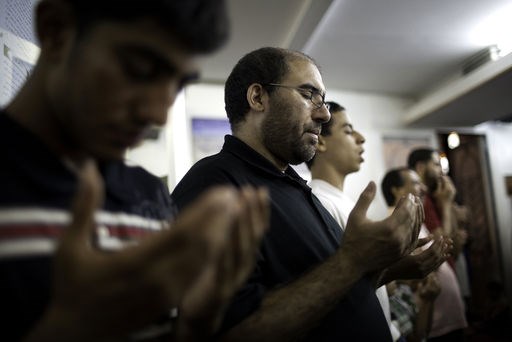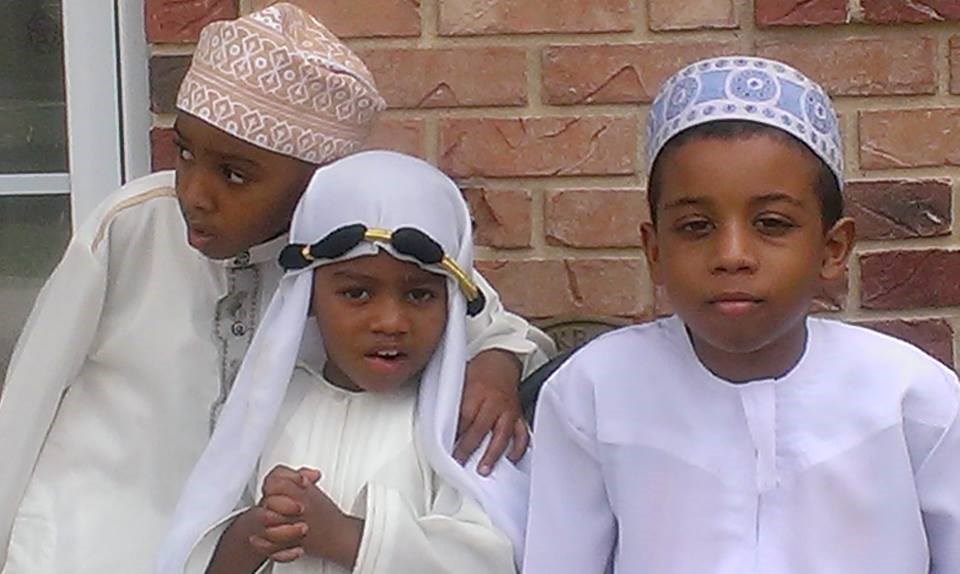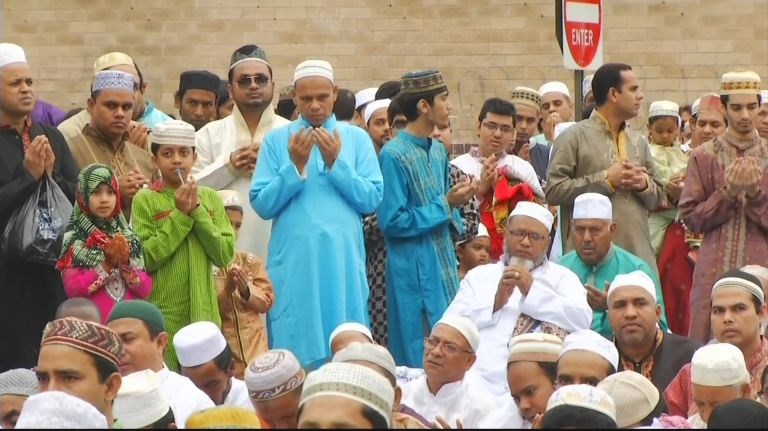
Photo: MSNBC.com
Beginning Saturday, June 28 - Monday, July 28, 2014, thousands of Muslims in Bed-Stuy and across Central Brooklyn will sustain up to 16 hours without food and water for an entire month, in observance of Ramadan, the Islamic holy month of spiritual introspection, which includes cleansing and charity, good deeds, kindness and helping others.
Considered to be the most scared of Muslim holidays, Ramadan takes place during the ninth month of the Islamic calendar, believed to be the month in which the Qur'an (the Muslims' holy scripture) began to be revealed to Muhammad (the final Prophet of Allah).
Since Ramadan is a lunar month, it begins about eleven days earlier each year. During a Muslim's lifetime, Ramadan will fall both during winter months, when the days are shorter, and summer months when they're longer.
"Ramadan to the Islamic community is very important, because it is a commandment from Allah, the creator of the heavens and the earths," said Tariq Dawan, an imam at the Masjid Abdul Muhsi Khalifah mosque in Bed-Stuy. "He said all you who believe, fasting is prescribed for you today as it was prescribed to those before you so that you may learn self-restraint."
An estimated 800,000 Muslims in New York City, many of them in Brooklyn will wake up well before sunrise to eat a small meal before the fast begins. The daily routine includes special Ramadan prayers and Qur'an recitations at night lasting from 9:30pm to 11:30pm.
However, the most difficult test for practicing Muslims during Ramadan is often thirst said Yusuf Abdul Ahad, a Muslim and member of the well-known Masjid At-Taqwa mosque on Bedford and Fulton Street.

"We have to make sure we get enough to drink in the morning because one of the things we found in fasting, especially during this hot weather is that thirst is a bigger challenge than hunger," said Ahad. "I have fasted in all the four seasons of the year and certainly summer is more [challenging], as from daybreak to sunset, the days are longer. So we're talking about a 16-hour fast, whereas in the wintertime you're talking about a 12-hour fast."
During Ramadan, Masjid At-Taqwa mosque draws over 3,000 worshippers for evening prayers alone.
Besides fasting, Muslims will commit to extra prayers, abstain from intimate relations with their spouses and worldy affairs and will read the entire Qur'an.

Photo: cdn.news12.com/
Over the next month, Muslims also will participate in the night of the Laylat al-Qadr (the "Night of Decrees") that represents when the Quran's first verse was revealed, as well as the holiday of Eid ul-Fitr (the Festival of Breaking the Fast) which marks the end of the fasting period of Ramadan and the first day of the following month.
"For us as Muslims, Ramadan is really a very happy time of the year," said Ahad. "This fast has been commended by Allah for reasons best known to him. We accept it. We perform the fast. And really, for some people, this the happiest time of the year."



